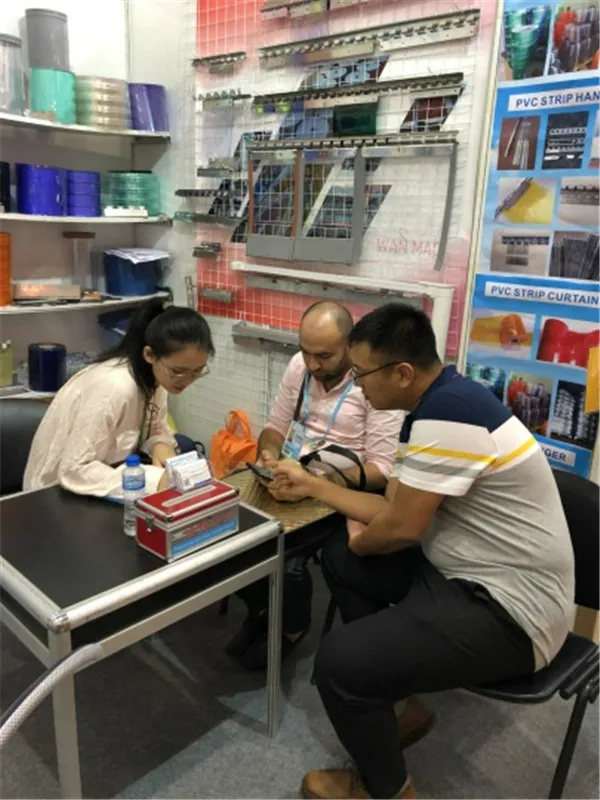Versatile Uses of PVC Plastic Rolls in Various Industries for Efficient Solutions
Understanding PVC Plastic Rolls Versatility and Applications
Polyvinyl chloride (PVC) is one of the most widely used thermoplastic materials in the world. Among its various forms, PVC plastic rolls have gained significant popularity across various industries due to their versatility, durability, and cost-effectiveness. This article delves into the characteristics, advantages, and applications of PVC plastic rolls, shedding light on why they are a preferred choice for many businesses and projects.
What is PVC Plastic Roll?
PVC plastic rolls are large sheets of polyvinyl chloride that are manufactured in roll form. They can vary in thickness, width, and color, providing a high degree of flexibility for different applications. The production process involves heating and processing polyvinyl chloride resin with various additives to enhance its properties, such as flexibility, durability, and resistance to weathering.
Key Characteristics
1. Durability PVC is known for its robustness and resistance to impact, weather, and chemical exposure. This makes PVC plastic rolls suitable for both indoor and outdoor applications.
2. Water Resistance One of the inherent properties of PVC is its water resistance. This quality makes PVC rolls an excellent choice for applications where moisture is a concern.
3. Lightweight Compared to other materials, PVC is lightweight, making it easier to handle, transport, and install.
4. Recyclability PVC is recyclable and can be reprocessed into new products, contributing to environmental sustainability.
5. Cost-Effectiveness Compared to alternatives like wood or metal, PVC is often more affordable, making it an attractive option for businesses looking to minimize costs.
pvc plastic roll

Applications of PVC Plastic Rolls
The versatility of PVC plastic rolls allows them to be utilized across a wide range of industries, including
1. Construction In the construction sector, PVC rolls are often used as waterproofing membranes for roofs, walls, and foundations. They also serve as protective barriers, flooring materials, and insulation in various building applications.
2. Packaging The packaging industry benefits from PVC rolls for creating flexible packaging solutions. These rolls can be formed into bags, wraps, and other types of containers that protect products during storage and transportation.
3. Agriculture In agriculture, PVC plastic rolls are commonly used for greenhouse coverings, tunnels, and sheeting, providing protection to plants from harsh environmental conditions while allowing light penetration.
4. Signage and Advertising The graphic design and advertising industries utilize PVC vinyl rolls for making banners, signs, and displays. The ability to print high-quality graphics on PVC makes it an ideal choice for promotional materials.
5. Marine Applications PVC rolls are also used in marine applications, such as boat covers and awnings, due to their resistance to water and UV light.
Conclusion
PVC plastic rolls are a testament to the innovative uses of materials in modern industries. Their unique properties, coupled with a wide range of applications, continue to position them as a valuable resource in construction, packaging, agriculture, and many other sectors. As businesses seek sustainable and cost-effective solutions, the demand for PVC plastic rolls is likely to grow, underscoring their pivotal role in various industries. Whether it’s providing protection, insulation, or packaging, PVC plastic rolls are a reliable choice that delivers on performance and functionality.
-
Durable Welding Strip Curtain Rolls for Safety & EfficiencyNewsAug.21,2025
-
Heavy Duty Cold Room PVC Strip Curtains - Energy Efficient SolutionsNewsAug.19,2025
-
Durable PVC Curtain Track - Easy Install & Smooth GlidingNewsAug.18,2025
-
Durable PVC Strip Curtain Hanger | Stainless Steel MountNewsAug.17,2025
-
PVC Folding Curtain: Space-Saving & Stylish PrivacyNewsAug.16,2025
-
Industrial Roll Up Curtains | Durable & Clear PVC SolutionsNewsAug.15,2025



